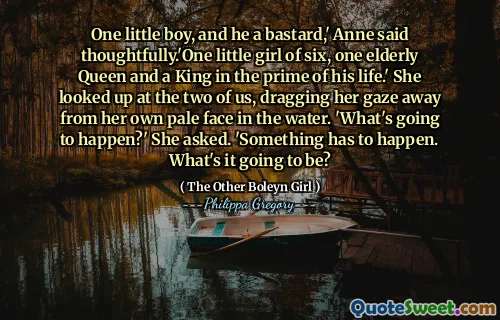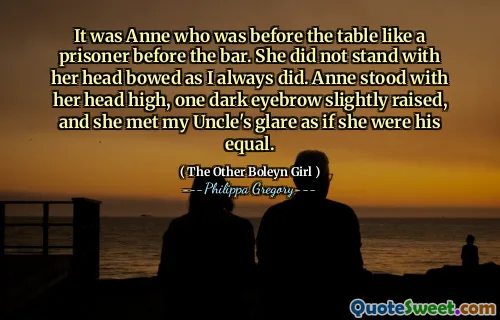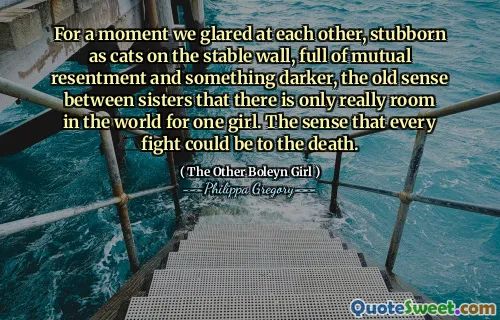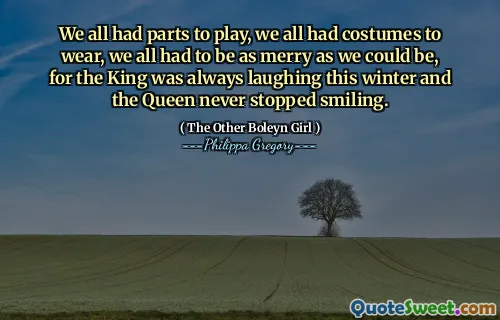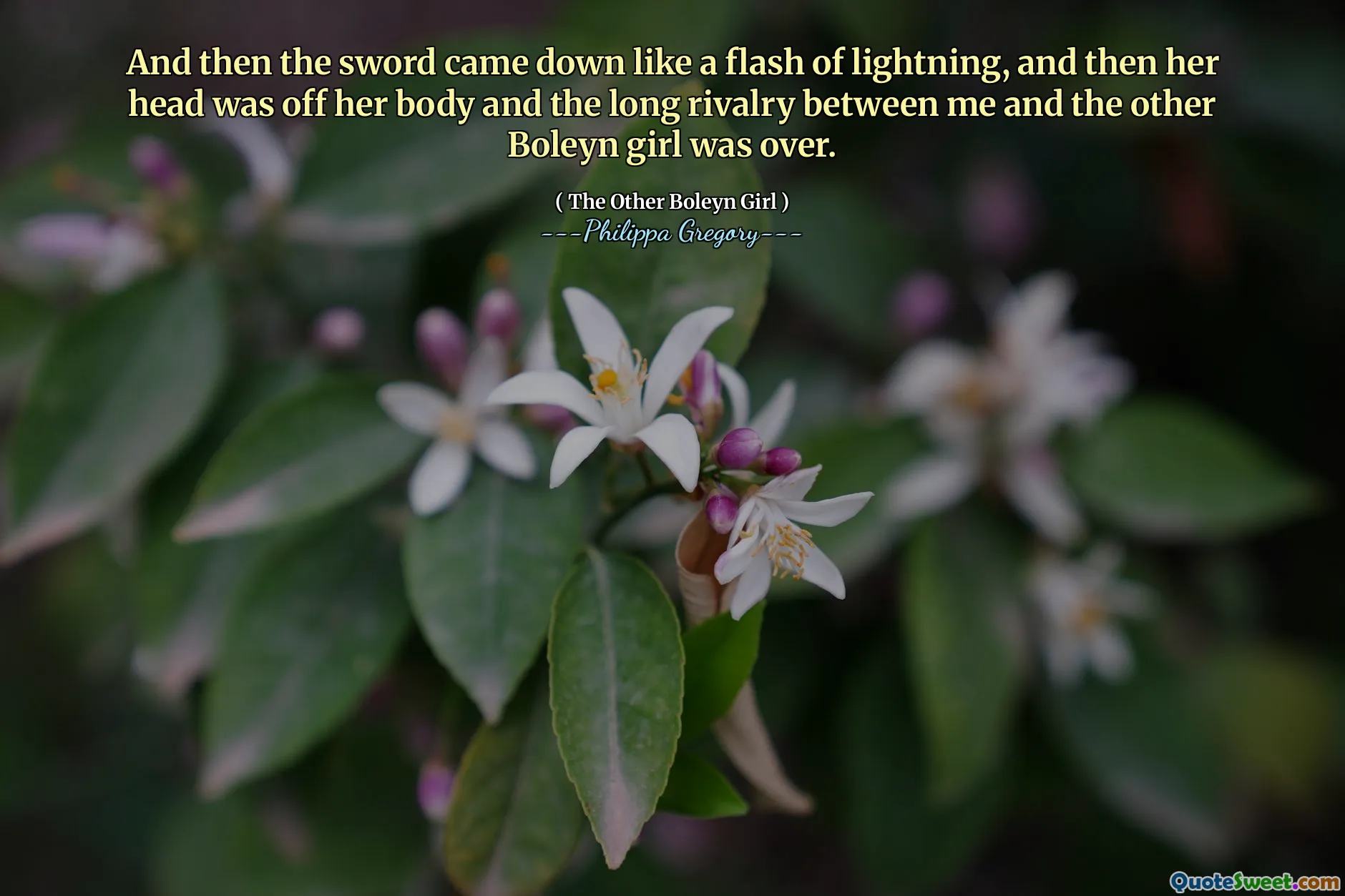
And then the sword came down like a flash of lightning, and then her head was off her body and the long rivalry between me and the other Boleyn girl was over.
This vivid scene captures the brutal culmination of political intrigue and personal rivalry during a tumultuous period in English history. The imagery of the sword striking like lightning emphasizes both the suddenness and the destructive power of the execution, serving as a stark reminder of the lethal consequences of power struggles in the Tudor court. The phrase 'her head was off her body' is blunt yet effective, encapsulating the inescapable fate awaiting those caught in the crossfire of monarchy, ambition, and betrayal.
Reflecting on this moment, one can't help but consider the profound cost of rivalry rooted in ambition and status. The characters involved, particularly from Philippa Gregory's perspective, represent women who are both victims and agents within a patriarchal system that valorizes loyalty and punishes dissent harshly. In a more symbolic sense, the rivalry transcending personal—it mirrors the larger political machinations that define history, where alliances are fragile, and enemies can be eliminated in an instant. The personal is political, as the saying goes, especially in monarchies, where the line between life and death is razor-thin.
This scene also invites contemplation on how history remembers such moments—highlighted by their brutality and drama, yet often obscured by the complexity of motives. The figures involved may be reduced to a single act, but underlying themes of betrayal, desire for power, and the tragic cost of rivalry resonate beyond the immediate historical context. Gregory's detailed storytelling brings these events to life, reminding us how personal grudges and political ambitions intertwine in shaping the course of history.
Overall, the quote underlines the inevitable tragic outcomes of jealousy and ambition when intertwined with the ruthless machinery of power. It serves as both a vivid narrative moment and a reflection on the darker aspects of human nature and political machinations that define history's most infamous episodes.


